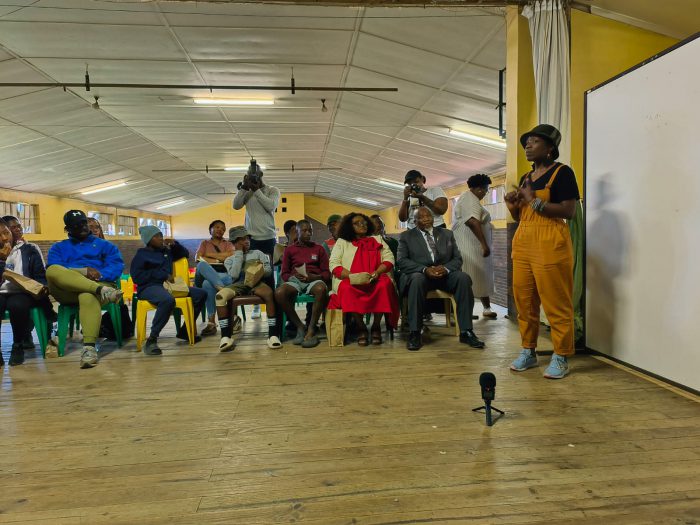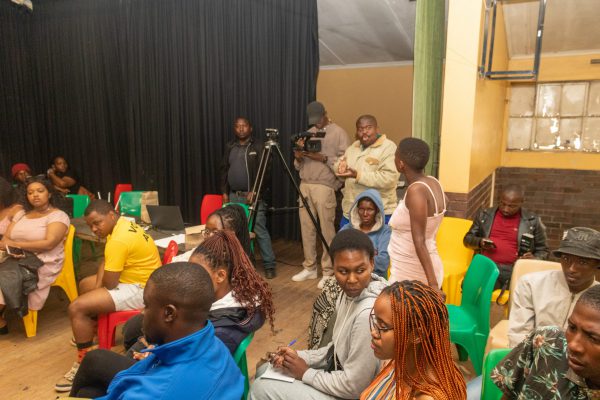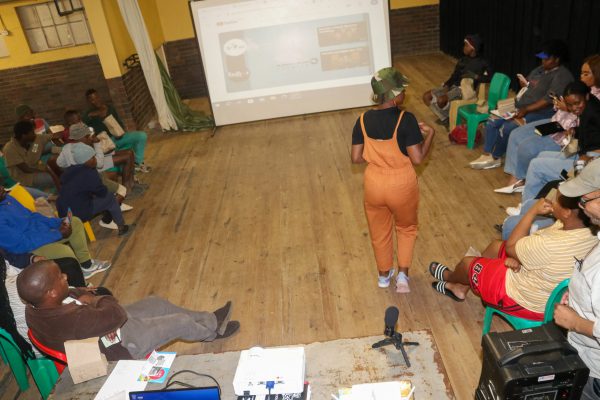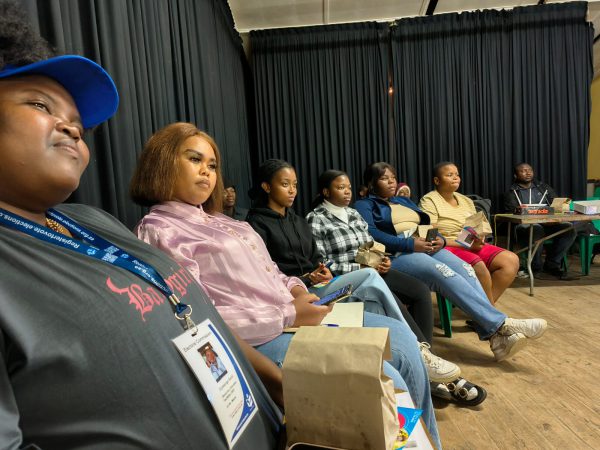By Buhle Andisiwe Made
Sive Sotashe, Zamamiya Majola and Nontokozo Mchunu *[1] hosted its first Young Voices event in Joza on Saturday, 11 November, discussing the future of South Africa in connection to the town of Makhanda. Hosted at the Noluthando Community Hall in Ward 2, Khula Tech Solutions, River of Life Church, Ten Cross Street, and Mykhanda Media *[2] sponsored the afternoon. It showcased a screening of the impact documentary Temperature Rising, produced by Reshad Desai and Anita Khanna.
Young Voices served as a dialogue between the youth of Makhanda and community activists, who formed a panel consisting of Ludwig Chanyau – co-chairperson of the Monitoring and Evaluating Climate Communication and Education project’s Africa-Regional Hub. Shepi Mati was also a panellist; Mati is currently a lecturer at the School of Journalism and Media Studies at Rhodes University, with extensive experience and work in the fight for freedom in Apartheid South Africa. Shepi Mati has contributed extensively to community engagement work in and around Makhanda. Anelisa Bentele, co-director of Isikhalo Women’s Movement, a safe house for abused women and children. Bentele also serves as an activist journalist for Khanya College in Johannesburg. The three were a panel discussing critical issues faced by citizens of South Africa.

The premise of the afternoon was the concept of social issue, centred around the impact film Temperature Rising, which exposes the obstacles to climate action and makes a strong case for movement building from below at a time when the ability of activists to persuade political leaders to take action is critical to the very survival of large numbers of people.
From the screening, audience members learnt about climate change and its effect on South Africa and, on a greater scale, the world. Audiences got to understand how their own green footprint contributes to climate change, highlighting that our government is not adequately prepared for climate change – “And there’s nothing being done to prepare us for what might happen in the future,” said one attendee.
Chanyau mentioned that the real people affected by all the climate issues and pollution are those who are disadvantaged. Those in communities like Joza do not necessarily have the means to dissociate from the hardship and somewhat accommodate this kind of crisis.
Another essential factor of the gathering was voter education and the responsibility of voters. The youth were encouraged to interact with the right to democracy; Mati highlighted the term “citizen agency”, referring to the process of educating, involving, and empowering people to engage with and impact government.

One speaker pointed out that things should be more focused on Makhanda. “It’s all good and well to understand climate change, but I wish we could engage on things such as dumps in Makhanda and how they’re a hazard for our own.” She mentioned that localising issues that affect the climate may better educate communities on the issue; in other words, it conceptualises the concepts to the locals.
Young Voices aimed to mobilise as youth and discuss the issues that matter most, but above all, discuss how they can utilise their voices to leave their stamp on the vote paper in April next year.
This weekend, on 18 November, communities, especially the youth of Makhanda, are encouraged to register to vote in the upcoming elections. Residents must have their identity document when registering; all halls will be open for people to register.

Corrections:
*[1] The originally published article stated that Phakade Media hosted the event. However, the hosts are Sive Sotashe, Zamamiya Majola and Nontokozo Mchunu.
*[2] Mykhanda Media was misspelt as Makhanda Media


